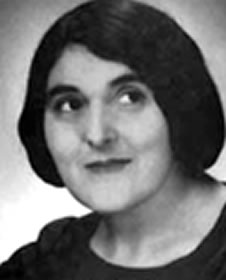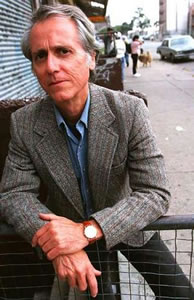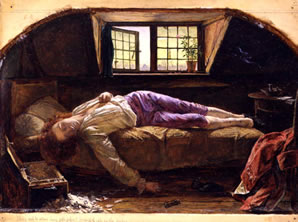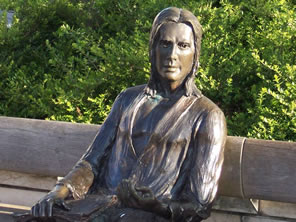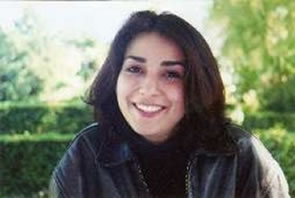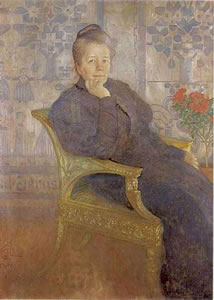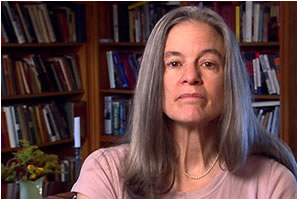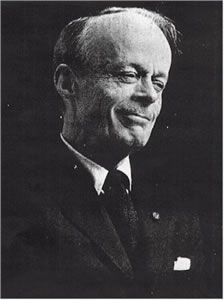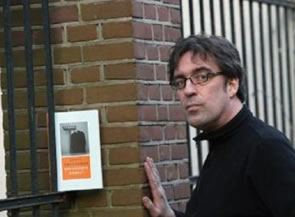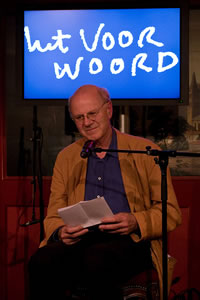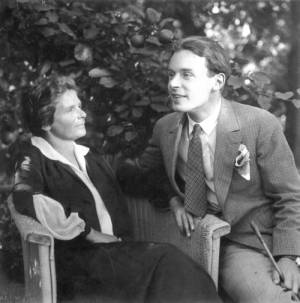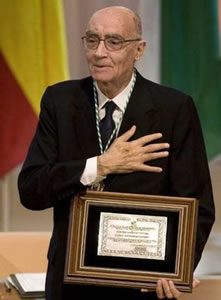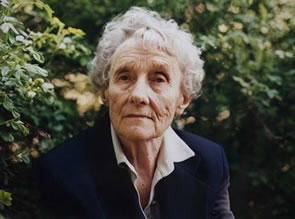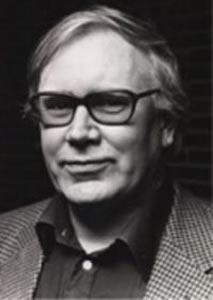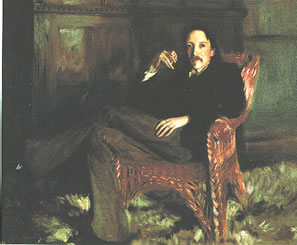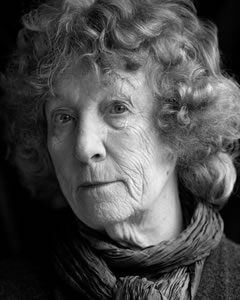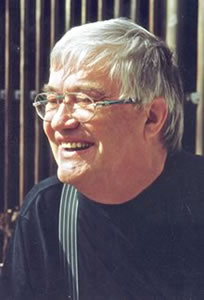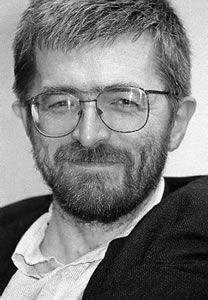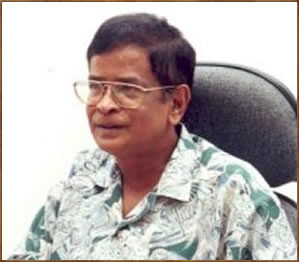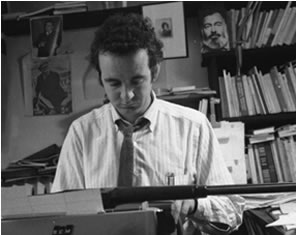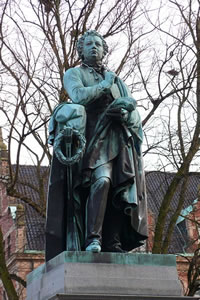De Franse schrijver André Gide werd geboren op 22 november 1869 in Parijs. Zie ook mijn blog van 22 november 2006 en ook mijn blog van 22 november 2007.
Uit: Corydon
„« Comprenez-moi : l’homosexualité, tout comme l’hétérosexualité, comporte tous les degrés, toutes les nuances : du platonisme à la salacité, de l’abnégation au sadisme, de la santé joyeuse à la morosité, de la simple expansion à tous les raffinements du vice. L’inversion n’en est qu’une annexe. De plus tous les intermédiaires existent entre l’exclusive homosexualité et l’hétérosexualité exclusive. Mais, d’ordinaire, il s’agit bonnement d’opposer à l’amour normal un amour réputé contre nature – et, pour la commodité, on met toute la joie, toute la passion noble ou tragique, toute la beauté du geste et de l’esprit d’un côté ; de l’autre, je ne sais quel rebut fangeux de l’amour… »
(…)
« Ne vous êtes-vous pas avisé qu’elles agissent aussi bien dans l’autre sens ? Souvenez-vous du mot profond de La Rochefoucauld : Il y a des gens qui n’auraient jamais été amoureux s’ils n’avaient jamais entendu parler de l’amour. – Songez que, dans notre société, dans nos moeurs, tout prédestine un sexe à l’autre ; tout enseigne l’hétérosexualité, tout y invite, tout y provoque, théâtre, livre, journal, exemple affiché des aînés, parade des salons, de la rue. Si l’on ne devient pas amoureux avec tout ça, c’est qu’on a été mal élevé, s’écrit plaisamment Dumas fils dans la préface de la Question d’Argent.
Quoi ! si l’adolescent cède enfin à tant de complicité ambiante, vous ne voulez pas supposer que le conseil ait pu guider son choix, la pression incliner, dans le sens prescrit, son désir !
Mais si, malgré conseils, invitations, provocations de toutes sortes, c’est le penchant homosexuel qu’il manifeste, aussitôt vous incriminez telle lecture, telle influence ; (et vous raisonnez de même pour un pays entier, pour un peuple) ; c’est un goût acquis, affirmez-vous ; on le lui a appris, c’est sûr ; vous n’admettez pas qu’il ait pu l’inventer tout seul. »

André Gide (22 november 1869 – 19 februari 1951)
De Engelse schrijfster George Eliot werd geboren op 22 november 1819 in Nuneaton in Warwickshire. Zie ook mijn blog van 22 november 2006.
Uit: Middlemarch
“WHO that cares much to know the history of man, and how the mysterious mixture behaves under the varying experiments of Time, has not dwelt, at least briefly, on the life of Saint Theresa,’ has not smiled with some gentleness at the thought of the little girl walking forth one morning hand – in – hand with her still smaller brother, to go and seek martyrdom in the country of the Moors? Out they toddled from rugged Avila, wide – eyed and helpless – looking as two fawns, but with human hearts, already beating to a national idea; until domestic reality met them in the shape of uncles, and turned them back from their great resolve. That child – pilgrimage was a fit beginning. Theresa’s pass
ionate, ideal nature demanded an epic life: what were many – volumed romances of chivalry and the social conquests of a brilliant girl to her. Her flame quickly burned up that light fuel; and, fed from within, soared after some illimitable satisfaction, some object which would never justify weariness, which would reconcile self – despair with the rapturous consciousness of life beyond self. She found her epos in the reform of a religious order.
That Spanish woman who lived three hundred years ago was certainly not the last of her kind. Many Theresas have been born who found for themselves no epic life wherein there was a constant unfolding of far – resonant action; perhaps only a life of mistakes, the offspring of a certain spiritual grandeur ill – matched with the meanness of opportunity; perhaps a tragic failure which found no sacred poet and sank unwept into oblivion. With dim lights and tangled circumstance they tried to shape their thought and deed in noble agreement; but after all, to common eyes their struggles seemed mere inconsistency and formlessness; for these later – born Theresas were helped by no coherent social faith and order which could perform the function of knowledge for the ardently willing soul. Their ardour alternated between a vague ideal and the common yearning of womanhood; so that the one was disapproved as extravagance, and the other condemned as a lapse.”

George Eliot (22 november 1819 – 22 december 1880)
De Russische schrijver Viktor Pelevin werd geboren op 22 november 1962 in Moskou. Zie ook mijn blog van 22 november 2006.
Uit: Buddha’s Little Finger (Vertaald door Andrew Bromfield)
„Tverskoi Boulevard was exactly as it had been when I last saw it, two years before. Once again it was February, with snowdrifts everywhere and that peculiar gloom which somehow manages to infiltrate the very daylight. The same old women were perched motionless on the benches; above them, beyond the black latticework of the branches, there was the same grey sky, like an old, worn mattress drooping down towards the earth under the weight of a sleeping God.
Some things, however, were different. This winter the avenues were scoured by a blizzard straight off the steppes, and I should not have been in the least surprised to have come face to face with a pair of wolves during the course of my walk. The bronze Pushkin seemed a little sadder than usual – no doubt because his breast was covered with a red apron bearing the inscription: ‘Long Live the First Anniversary of the Revolution’. I felt not the slightest inclination for ironical comment on the fact that the cheers were intended for an event which could not by definition last longer than a single day – just recently I had been afforded more than ample opportunity to glimpse the demonic face concealed behind such lapidary absurdities inscribed on red.
It was beginning to get dark, but I could still make out Strastnoi Monastery through the snowy haze. On the square in front of it were two open trucks, their tall side walls tightly strung with bright scarlet material; there was a crowd jostling around them and the orator’s voice carried to where I stood. I could scarcely make out anything of what he said, but the general meaning was clear enough from his intonation and the machine-gun rattle of the ‘r’ in the words ‘proletariat’ and ’terror’. Two drunken soldiers walked past me, the bayonets on their rifles swaying behind their shoulders. They were hurrying towards the square, but one of them fixed his brazen gaze on me, slowed his pace and opened his mouth as though about to say something; fortunately – for him and for me – his companion tugged him by the sleeve and they walked on.“

Viktor Pelevin (Moskou, 22 november 1962)
De Brits-Indische schrijverstweeling Suresh and Jyoti Guptara werd geboren op 22 november 1988 in Frimley, Hants in het zuidoosten van Engeland. Op zeven-jarige leeftijd verhuisden zij naar Zwitserland. Het eerste ontwerp van “Conspiracy of Calaspia”, deel 1 van de geplande Insanity Saga. voltooiden zij toen zij elf waren. Na vele herschrijvingen en correcties werd het boek in 2005 uitgegeven. Jyoti ging op zijn vijftiende al van school af om fulltime schrijver te worden. Zijn broer Suresh voltooide eerst wel de opleiding wel aan Bradfield College, alvorens zich bij hem te voegen.
Uit: Conspiracy of Calaspia
„Spray from the waterfall moistened his suntanned skin. Sand skipped through the air, the granules sticking uncomfortably where the water had dampened him. This rare gust of wind ruffled the Dwarf’s mane of hair and sent the golden curls dancing around his massive shoulders.
There it was again – the bellow of Nurgor war-cries. Galar leaned further on the head of his axe, surveying the lay of the land with a myopic squint.
‘Jevel,’ the Dwarf cursed under his breath. He had forgotten his spectacles, yet again. His axe, on the other hand, he didn’t even need to think about, strapped as it was to his back – unless it was in his chunky hands, like it was now.
Galar jumped to run and stopped on one foot, poised between darting back to his hut to retrieve his spectacles, and investigating at once. If battle were to come, it was always a compromise between looking fierce and seeing clearly. The decision was made in an instant as the momentum of his charge conquered considerable inertia. Then Galar was flying down the mountainside, bare feet flinging up sand like a camel. Short, quick strides carried the warrior through the desolate terrain that was a blur to either side of him.
Were they trees or Nurgor? Galar had lived here for years, and yet it was impossible to judge between vegetation and monsters without his glasses. The land had a mind of its own. And it liked to change its mind frequently. The Dwarf ignored the hazy blobs and kept his course, figuring that if they had been Nurgor, they would either be rushing him or fleeing by now.
The glaring sun suddenly faded for a moment, throwing the mountain range around him into gloom. Galar had just mounted the top of a hill, and it was at this moment that he found what he was looking for. No Nurgor were in sight, but their prey was. Out of breath by now, and cursing for the hundredth time the climate of the land he had made his home, Galar hurried to the stranger’s side.
‘Friend!’ he called. ‘S’alright, yer safe!’
As he approached, the figure became, in Galar’s sight, with ever more certainty, a man.
Was he dead? „

Suresh en Jyoti Guptara (Frimley, 22 november 1988)
De Amerikaanse schrijver William Kotzwinkle werd geboren op 22 november 1943 in Scranton, Pennsylvania. Hij werd vooral bekend als schrijver van het boek bij de film “E.T.” en het vervolg erop dat op de thuisplaneet van de hoofdfiguur speelt. Kotzwinkle bezocht het Rider College en de Pennsylvania State University. Na verschillende banen begon hij met schrijven in 1958. Hij is getrouwd met de schrijfster Elizabeth Gundy.
Uit: Ein Bär will nach oben
„Der Bär saß da, umgeben von gestapelten Exemplaren seines Buches, die die Buchhandlung in Philadelphia heute zu verkaufen hoffte. Die Bücherfreunde waren zufrieden, daß er sich die Zeit nahm, seinen Namen deutlich zu schreiben und nicht flott und herablassend einen unleserlichen
Kringel hinwarf, wie ihn manche Schriftsteller auf der Titelseite ihrer Bücher hinterlassen. “Würden Sie dieses vielleicht Bob widmen ?” bat die Frau, die vor ihm stand.
“Wie schreibt man das ?” wollte der Bär wissen.
“Wie schreibt man was ?”
“Bob”
“Oh, ganz normal”, lachte die Frau und sah dann, dass Jam, den Stift in Bereitschaft, wartete. “B-O-B”, sagte sie leicht verwirrt.
Der Bär sprach die Buchstaben lautlos vor sich hin und schrieb B-O-B; mit seinem eigenen Namen, J-A-M, machte er es genauso. Seine Pressebetreuerin in Philadelphia war Adele Nofsacker. Adele neigte zur Hysterie, und als sie sah, wie langsam er schrieb, wusste sie, dass sie diesen Anblick nicht ertragen würde. Deshalb überredete sie ihn, nur noch mit Jam zu unterschreiben; der Bär war einverstanden, denn was Besseres als Jam gab es nicht.
Jetzt ging sie in den vorderen Teil des Ladens, wo der Geschäftsführer strahlte, weil so viele Leute zu Jams Signierstunde gekommen waren. “Er hat alle im Sturm erobert, nicht wahr? Dass er den Vizepräsidenten gerettet hat, war natürlich sehr hilfreich.”
Während der Geschäftsführer mit Adele sprach, wurde ein Vorab-Exemplar der New York Times Book Review geliefert. Adele schlug rasch die Bestsellerliste auf. Hal Jams Buch stand auf Platz 1.
Adele trug die Zeitung zu Jams Tisch und breitete sie vor ihm aus. “Sie haben´s geschafft.” Der Bär schaute auf die Stelle, auf die Adele zeigte, und dann hoch zu ihr.
“Sie sind die Nummer eins”, strahlte sie.
“Ich bin Jam”, beharrte der Bär.“
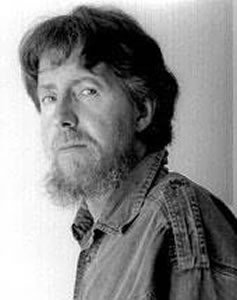
William Kotzwinkle (Scranton 22 november 1943)
De Hongaarse dichter Endre Ady werd geboren op 22 november 1877 in het huidige Adyfalva.
Begrafenis op zee
Aan de Bretonse kust een droom.
Wij liggen slapend wit en dood
in het winters grijze zeegebied.
Er komen sterke boerenjongens
en ernstige meisjes, het haar gebonden.
Er klinkt een vroom en droevig lied.
Gezang en mist. De golven roepen.
Eerbiedig en met tranen, bloemen,
Bergen ze ons in een rode boot.
De ijzige orkaan dreunt wild.
Het water grijpt ons rode schip.
Daar gaan wij slapend, wit en dood.
De Dood in vlees en bloed
Mij zit de Dood in vlees en bloed,
Ik houd van hartstocht die verbleekt is,
Ik houd ervan te kussen wie
Mij alleenlaat.
Ik houd van ’t griezelig nodigende
Wenken van droevige avonden:
De grote, heilige Dood die zich
Speels aankondigt.
Ik houd van wie hier ver vandaan wil,
Van wie in tranen wakker werden,
En van de ijzige ochtendkou
Op de velden.
Ik houd van wie de moed moe opgeeft,
Van stille tranen, de berusting,
Waarin wijzen, zieken, dichters
Hun toevlucht zien.
Ik houd van wie ontgoocheld raakte,
Van wie gevallen zich bezeerde,
Van wie bedroefd, wanhopig is:
Van de wereld.
Mij zit de Dood in vlees en bloed,
Ik houd van hartstocht die verbleekt is,
Ik houd ervan te kussen wie
Mij alleenlaat.
Vertaald door Kees Bakker

Endre Ady (22 november 1877 – 27 januari 1919)
De Engelse schrijver George Robert Gissing werd geboren op 22 november 1857 in Wakefield, Yorkshire. Gissing was een briljante student, maar nadat hij verliefd was geworden op een prostituee raakte hij aan lager wal en werd uiteindelijk door sympathisanten geholpen om naar de VS te vertrekken. Daar hield hij het hoofd boven water door voor de Chicago Tribune korte verhalen te schrijven. In 1877 keerde hij terug naar Engeland en begon hij romans te schrijven.
In romans als „Workers in the Dawn“ uit 1880 en „The Unclassed“ uit 1884 beschreef hij de catastrophale gevolgen van de sociale verhoudingen in het Victoriaanse Engeland. Zijn boel over het zuiden van Italië „By the Jonian Sea“ behoort tot de klassieke Engelse reisliteratuur.
Uit: Workers In The Dawn
Walk with me, reader, into Whitecross Street. It is Saturday night, the market-night of the poor; also the one evening in the week which the weary toilers of our great city can devote to ease and recreation in the sweet assurance of a morrow unenslaved. Let us see how they spend this “Truce of God;” our opportunities will be of the best in the district we are entering.
As we suddenly turn northwards out of the dim and quiet regions of Barbican, we are at first confused by the glare of lights and the hubbub of cries. Pressing through an ever-moving crowd, we find ourselves in a long and narrow street, forming, from end to end, one busy market. Besides the ordinary shops, amongst which the conspicuous fronts of the butchers’ and the grocers’ predominate, the street is lined along either pavement with rows of stalls and booths, each illuminated with flaring naphtha-lamps, the flames of which shoot up fiercely at each stronger gust of wind, filling the air around with a sickly odour, and throwing a weird light upon the multitudinous faces. Behind the lights stand men, women and children, each hallooing in every variety of intense key — from the shrillest conceivable piping to a thunderous roar, which well-nigh deafens one — the prices and the merits of their wares. The fronts of the houses, as we glance up towards the deep blackness overhead, have a decayed, filthy, often an evil, look; and here and there, on either side, is a low, yawning archway, or a passage some four feet wide, leading presumably to human habi
tations. Let us press through the throng to the mouth of one of these and look in, as long as the reeking odour will permit us. Straining the eyes into horrible darkness, we behold a blind alley, the unspeakable abominations of which are dimly suggested by a gas-lamp flickering at the further end. Here and there through a window glimmers a reddish light, forcing one to believe that people actually do live here; otherwise the alley is deserted, and the footstep echoes as we tread cautiously up the narrow slum.“

George Robert Gissing (22 november 1857 – 28 december 1903)
De Nederlands dichteres en schrijfster Elisabeth Maria Post werd geboren in Utrecht op 22 november 1755. Zie ook mijn blog van 22 november 2006.
Uit: Reinhart, of natuur en godsdienst
„Een stevige Oostenwind, die zedert gisteren blijft aanhouden, doet onzen kapitein besluiten, om zee te kiezen. Alles is op ons schip in eene rustlooze beweeging. Met de zoo aanstonds vertrekkende boot kan ik alleenlijk eene korte, ach! eene laatste groet aan U medegeven. Als gij dezen haastig geschreeven brief leest, ben ik misschien reeds veele mijlen van een strand verwijderd, waar mijn leven begon, dat mijn eerste kindergeschrei hoorde, en dat ik met jongelingstraanen verliet: dan heeft de naam van Vaderland reeds eenen hartbreekenden klank voor mij; en ach dit had hij reeds eenige dagen: de twee weeken die wij in Texel doorbragten, waren mij zeer treurig; hoe veel duizendmalen vloog mijn ziel nog naar mijne achtergelatene vrienden terug, en toch vermogt ik niet tot hen wedertekeeren; het vaderland was mij als een vreemd gewest; ik mogt niet eenmaal op dien dierbaaren grond meer overnachten: mijne oogen staarden zig dikwerf moede op de verwarde verschieten die duin en bosch op eenen verren afstand opleverden; angstig zocht ik het plekjen daar mijne moederstad op verrees: maar de lieve torenspits was, door de afgelegenheid, voor mij onzichtbaar. Weeker geworden door ’t gevoel der scheiding, scheen mijn hart al zijne zaligheid in dat plekjen gronds besloten te zien, dat ik gereed stond te verlaten; en toch liever wilde ik dit, dan langer door een hoopeloos gezicht gepijnigd te worden. Menigwerf zag ik uit naar de wolken, of de wind niet van streek veranderde; toen hij eindelijk naar het oosten draaide, klopte mijn hart van gemengde aandoeningen; en nu – nu verlaat ik mijn vaderland geheel, om op eenen anderen hoek des aardbodems een verblijf, meer voor mijn lot berekend, te zoeken. O mogten de rampen, die hier mijne ouders zoo gevoelig troffen niet met mij reizen! bid dit van den Hemel voor mij af, lieve Karel! en dan vaarwel! Het geraas en getier van het scheepsvolk neemt toe; het anker is reeds geligt; men is bezig met de zeilen optehaalen; ik kan niets meer dan u nog eenmaal teder groeten, misschien is het voor eeuwig. Goeden nacht onvergelijkelijke vriend, vriend van mijn hart! troost mijne moeder, geef haar dezen brief. Kusch uwe Charlotte vaarwel voor mij, en – al hoordet gij ook nimmer weêr van mij, vergeet den jongen reiziger, vergeet uwen Reinhart nooit.“

Elisabeth Maria Post (22 november 1755 – 3 juli 1812)





